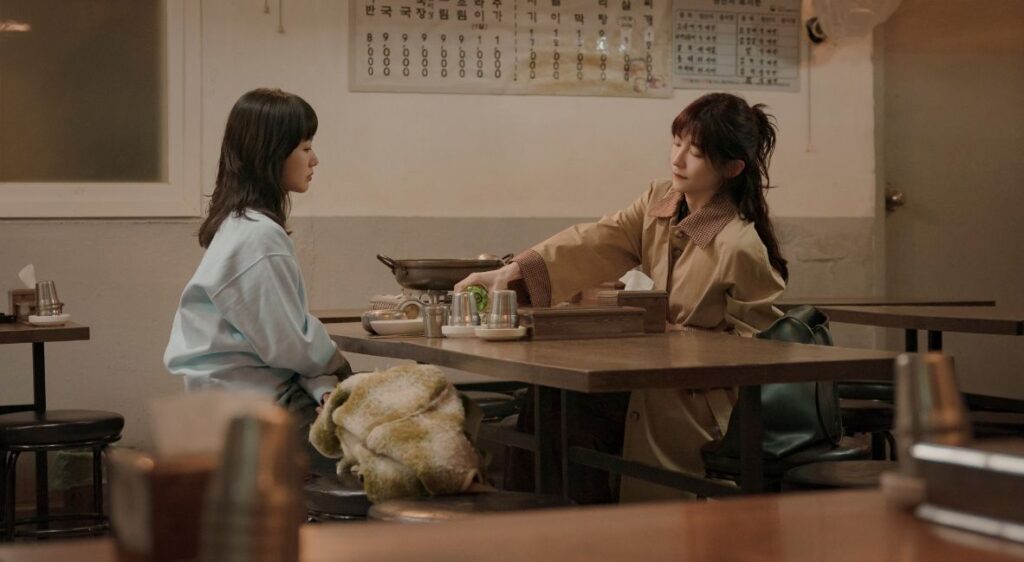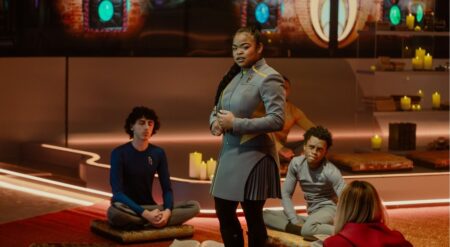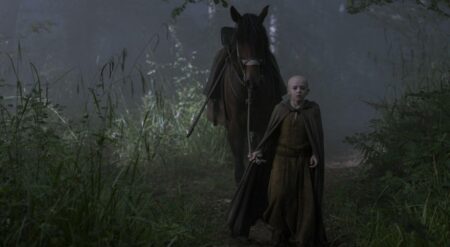Female friendships on screen and in media at large remain a noteworthy rarity despite the rich text those pivotal relationships entail. In the latest Netflix K-Drama, You and Everything Else, the story explores a decades-spanning friendship and rivalry between two women as they navigate life, death, romance, and the inescapable hilarity, heartache, and humiliation that come with being human.
Messy, frustrating, yet undeniably affecting, it’s an ambitious piece of storytelling that works as often as it stumbles, anchored by its two lead performances, which deliver moving and layered portraits of women trying their best, who fail and then learn from their mistakes.
Obviously, engaging stories about female dynamics are out there. But friendships between women are so laden with warmth, so ride-or-die driven, or complicated, so enriching in their inherent narrative complexities that it makes something like You and Everything Else enticing. Because we know, without question, that it’s their relationship – aside from some frustrating romantic entanglements – that is going to lead the plot.
From childhood until their early forties, You and Everything Else follows Ryu Eun-jung (Kim Go-eun) and Cheon Sang-yeon (Park Ji-hyun). The series begins in modern times, with the latter, after accepting a significant award, thanking Eun-jung for being the most influential person in her life. A note that will resonate later when Eun-jung tells her then-boyfriend that she can’t talk about her life without Sang-yeon coming up.
You and Everything Else tells a relatable and messy tale of friendship.
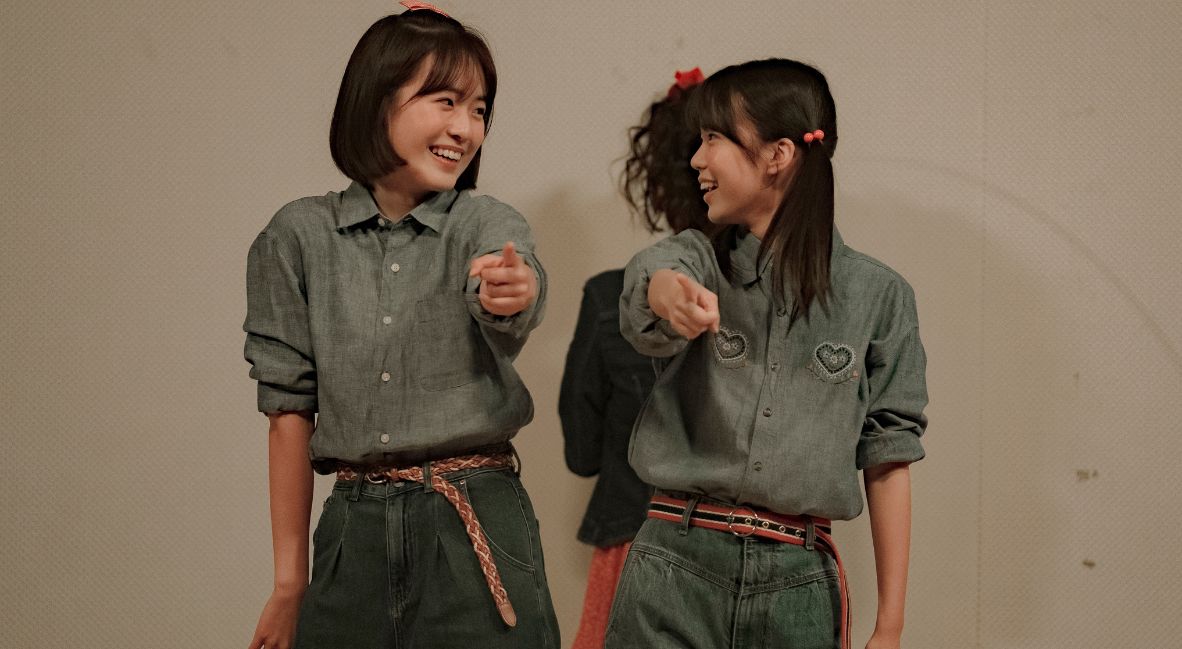
However, the opening moments only hold space for muted hostility and frustration. Now in her forties, Eun-jung has severed ties with her former friend after Sang-yeon took sole credit for a film based on Eun-jung’s story. Throughout You and Everything Else, we’ll learn this wasn’t a one-off. Their relationship is peppered with envy, deliberate hurts, and scorching remarks. And yet, they continue to return to one another.
Because following her speech, Sang-yeon has a new, severe request to make of Eun-jung, one that sends the latter spiraling as she recalls old emotional wounds and the paths that led the two to their current spots in life as she mulls over Sang-yeon’s request. All the while, she works on a potential story of her own.
We watch as their story evolves from petty resentment and societal pressure, envy, into something more profound. We get the first tell-tale signs of this give and take in their teenage years upon first meeting. Even more noteworthy is how, in these initial interactions, we see how envy will stamp itself across the rest of their journey. It’s a cyclical, sickly element that is relatable and, unfortunately, all too human. Even the best of us can’t help but be envious of those we love for strengths and attributes we find lacking in ourselves during our lowest moments.
The Netflix series finds strength in the characters who challenge each other.
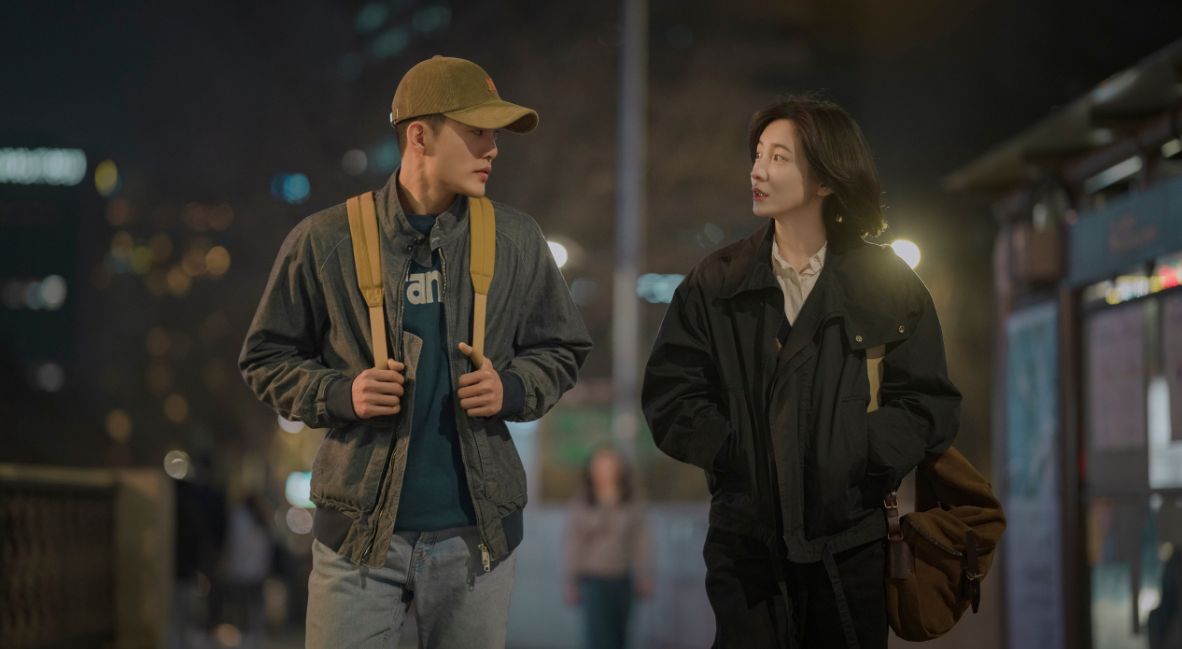
What’s so interesting about You and Everything Else is how it initially begins from a place of wealth and status before it flips it on its head. Eun-jung isn’t wealthy and lives in a partial basement apartment. She harbors so much shame for it that she refuses to bring friends home, lest they think less of her. So, she sees Sang-yeon, who is favored by teachers and classmates alike, the granddaughter of a minister, living in a beautiful, sunlit apartment complex, and notices the green.
But it quickly becomes apparent that it’s not just Eun-jung who sees what she lacks and desires while looking at Sang-yeon. It just takes the two becoming friends for it to come to fruition. Eun-jung is eloquent and personable. Sang-yeon’s mother favors her at school, and her brother confides in Eun-jung even when he begins to refuse to open up to anyone. There’s something about her that draws others out, an untouchable sense of self that can’t be mimicked.
The intersection of these two, along with the growth of their envy and the challenges they face, becomes even more complicated following an abrupt death that rocks both of them. Said death that will become the catalyst for multiple relationships, a pivotal romance, and lead to answers that act as a necessary mark of catharsis and healing. That said, it also leads to one of the major issues plaguing You and Everything Else.
The flashback sequences unfortunately begin to drag despite a strong sense of style.
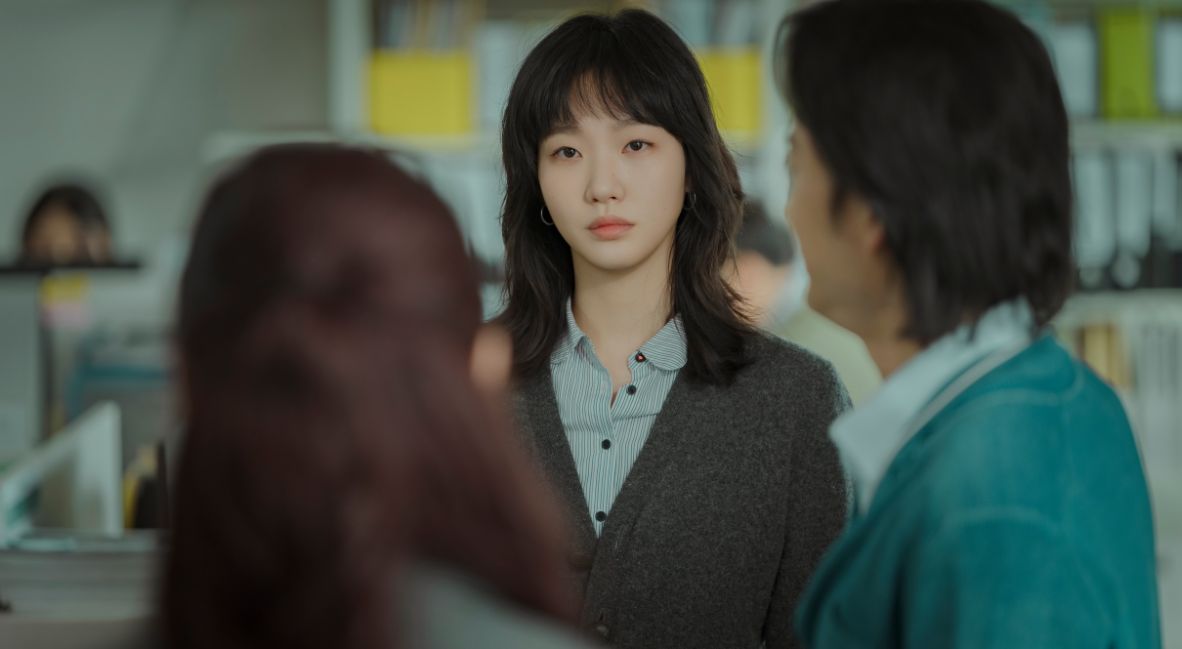
The pacing is abysmal at times, most obvious in their college years. Because even as Eun-jung’s relationship with the kind and compassionate Kim Sang-hak (Kim Gun-woo) takes off and becomes trickier with the arrival of Sang-yeon, it can’t help but derail and drag out the tension. And that’s hurt further by watching Eun-jung’s character be lied to and manipulated while we’re asked to sympathize with those who are deceiving her continually.
The last part isn’t as much of an issue because the series at least knows to a degree that Eun-jung isn’t being treated well. But it’s a laborious process to watch it all unfold at times, and it is in dire need of some energized forward motion. Divided into chapters that define the duo’s lives and the moments that make or break them, the college portion feels overly lengthy.
What the series achieves in those flashbacks is to define a sense of time. From pages to flip-phones, colour-blocking fleeces to sleeker, monochromatic stylings, to ’90s pop songs and A Chinese Odyssey, we never lose sight of when each portion of the story takes place.
Kim Go-eun and Park Ji-hyun are emotionally present and charismatic.
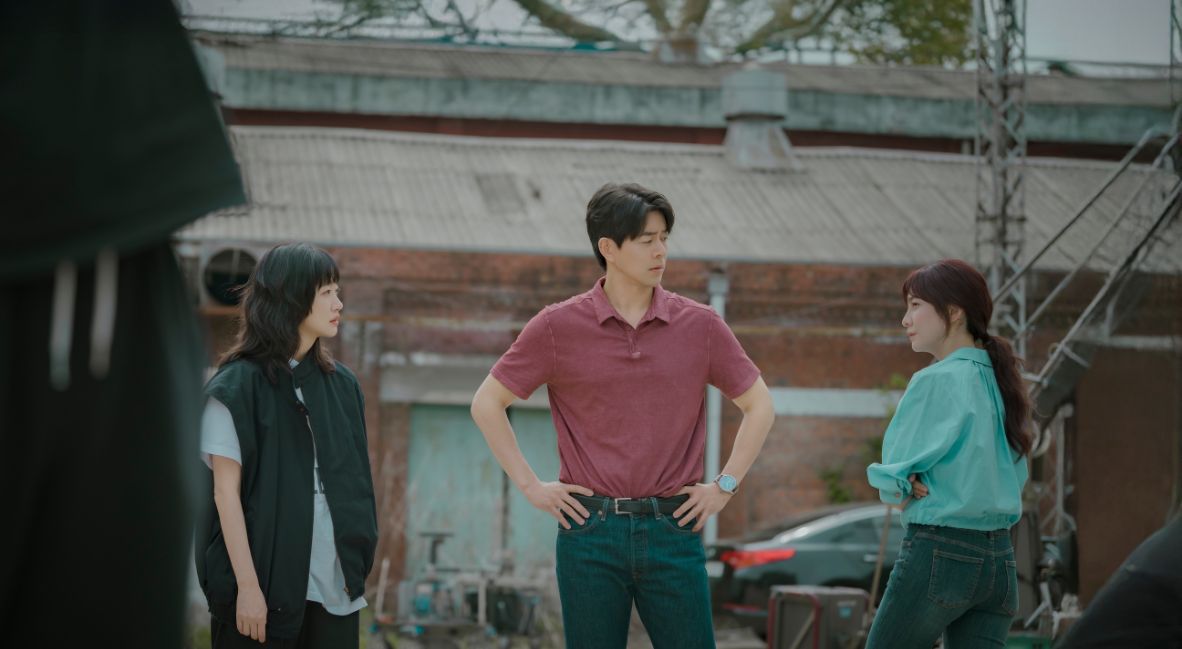
It helps amplify the cyclical nature of life. Because even as the look and feel of the world changes, moving away from clunky tech and the garish yet appealing aesthetic of millennial youth, the dynamic between these two women remains constant. Even if, on the outside looking in, it seems like it’s evolving.
Beyond the pacing and the frustration of so much drama in a story about two women boiling down to boy nonsense, the only other element that hinders the series is the score. While K-Dramas love to replay themes, You and Everything Else overdoes it, along with abrasive scores that spell out more melodrama than what actually appears onscreen.
Kim Go-eun and Park Ji-hyun are both phenomenal. Kim Go-eun is a tremendously emotive actress; her moments of subtlety work wonderfully against a character so typically exuberant and open with her emotions. And it’s a perfect contract for Park Ji-hyun, who prefers more control and precision in her performance. The more internal Sang-yeon becomes, the more she withholds, and Park Ji-hyun ensures we see fleeting glimpses of inner pain on her face.
A theme emerges – “To take a photograph is to collect time.”
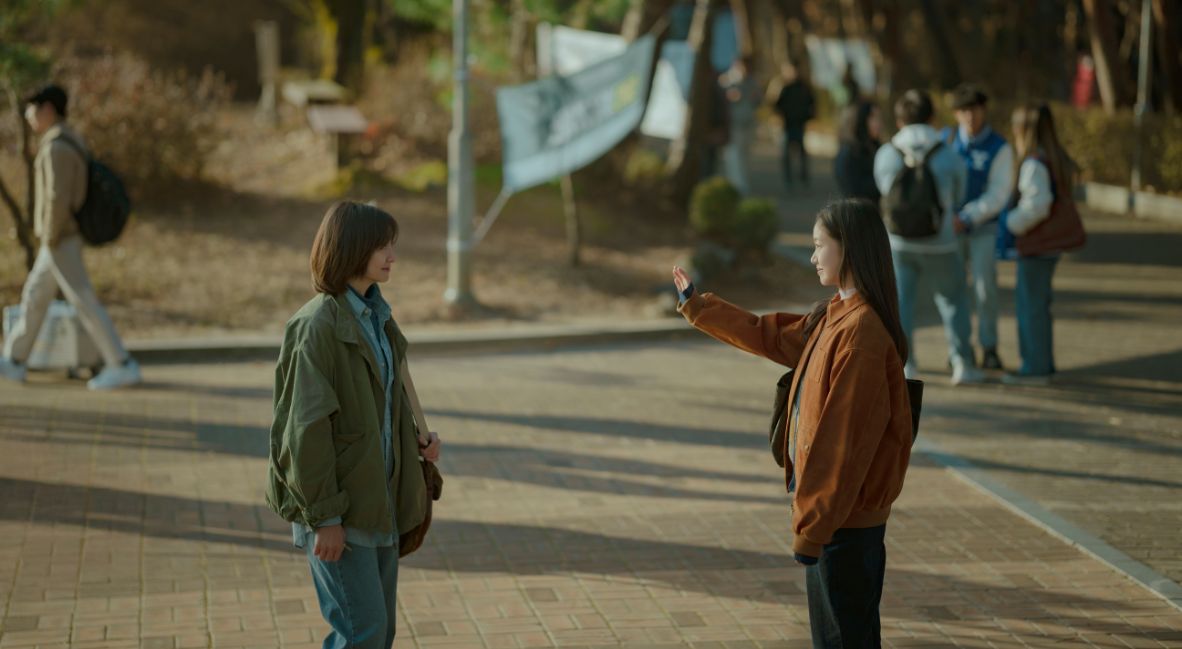
Seo Jung-Yeon as Sang-yeon’s mother, Yun Hyeon-suk, delivers one of the more heartbreaking performances of the series. A scene where she reckons with guilt is particularly moving, as she uses her hands as a means to move the labored, grieving breath out of her lungs. Kim Jae-won is also effective as Sang-yeon’s older brother and Eun-jung’s first love. His performance is perfectly enigmatic and subtly distant, a late-season development unveiling so many early acting choices.
Perhaps the series’s greatest achievement is in capturing the thesis statement of the series: “To take a photograph is to collect time.” Film, meanwhile, bottles it. Transforms it. Allows us to look back at the passage of it and spot inconsistencies and patterns. In a particularly bleak moment, Sang-yeon tells the adult Eun-jung she’ll know what she’s talking about because there are films about it. We see life through films and television, and it grants us tools to explore the world better and exhaust its many possibilities.
You and Everything Else stumbles along the way, but is an undoubtedly moving and at times heartbreaking portrait of two women and the paths they take that continually converge. Life-affirming in the belief that we’ll always be led back to the people who mark up the margins of our lives without succumbing to easy happy endings or easier answers, it’s a poignant and emotional drama that works best when it contains itself. The heart is apparent, and the performances are gripping. It just needed a tighter script to allow it to soar.
You and Everything Else is out now on Netflix.
You and Everything Else
-
Rating - 7.5/107.5/10
TL;DR
You and Everything Else stumbles along the way, but is an undoubtedly moving and at times heartbreaking portrait of two women and the paths they take that continually converge.

